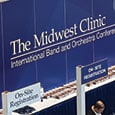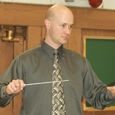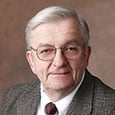Teaching can be an isolating profession. We work with many students in our classrooms, but are frequently the only music educator in the room. As a teacher, a supervisor may observe your classroom once a year or even less. We are encouraged to be self-reflective practitioners, but often need observations about our own teaching from someone else. It is critical to make time for professional development. For most districts, professional development means addressing the latest intervention strategy or technology; rarely is it content specific to music. So music teachers seek their professional development through continuing education in graduate courses, week-long workshops, or at state and national music conferences. Another great way to improve your own teaching is to watch a colleague in action.
I recently took a full day trip to Sun Prairie, Wisconsin, where I observed Chris Gleason, one of the band directors at Patrick Marsh Middle School. Chris is also the past president of the Comprehensive Musicianship Through Performance committee, which is how we met. I am always looking for other professionals who are highly successful with their own programs. Every program is unique and gives us an opportunity to learn a great deal. As one of my past principals put it, you should adopt the CASE method: Copy And Steal Everything. Many of the best teachers will freely share their resources and materials. During my visit, I raided my colleague’s professional library, asked about new apps for the iPad, and took copies of every handout in the room that looked interesting. But most importantly, I observed Chris in full band rehearsals with his students.
We all know the tremendous value of masterclasses for helping us develop new perspectives and insights on instrument pedagogy. Observing a full rehearsal can serve a very similar purpose for ensemble directors. I have been fortunate to observe many fine collegiate directors in rehearsal. And while I believe this is very important for the aspiring conductor, it is equally important to observe teachers at the same grade level as our own in their respective schools. Nothing can replace the experience of observing typical band students in a true rehearsal setting.
Typically, the student teaching placement at the end of a music education degree program is the most sustained opportunity we have to observe master teachers in action. What if we had the chance to return to this setting once we have acquired our own teaching experience? I would gladly take a sabbatical for a semester and observe various master teachers if such an opportunity existed. Observing a colleague for one day is the most practical option available to most of us.
When I began teaching at my current school, new teachers were required to shadow a student through an entire day of school. In my opinion, the best administrators never forget what it’s like to be a teacher, and similarly, the best teachers never forget what it’s like to be a student. You can easily follow a student through several periods of classes at your own school. It is very illuminating to experience school from a student’s perspective again. Some things haven’t changed in the least, while other things are radically different nowadays.
While in graduate school at Eastern Illinois University, I had the rare opportunity to take a private conducting lesson with Harry Begian. He shared with me one of the greatest axioms about teaching: “You will learn a lot about what to do and just as much about what not to do.” In a rehearsal situation, we are constantly making decisions that will ultimately move the rehearsal forward or set it back. Observing experienced teachers in their home settings is one of the best ways to learn about the critical pacing needed for effective rehearsals.
As Chris worked with the students at Patrick Marsh Middle School, I took notes on my laptop computer. I teach students in grades 9-12 on a daily basis, so it was particularly exciting for me to observe 7th Grade rehearsals led by an expert educator. I could see many similarities in our approach to rehearsal, but it was the differences in our approaches that enlightened me. In between classes, we discussed a wide variety of educational issues. As the saying goes, no man is an island. We all need the support and creative thinking of other people to help stretch us and lead us to new heights, both as teachers and musicians.
Best practice is a buzz word that is used to describe the most up-to-date and effective educational methods. I think the most valuable way to learn best practice is to see it in action. It’s easy to become deeply entrenched in our own programs. There will always be a million reasons why you think you can’t afford to miss a day of teaching at your school. Take a leap of faith instead and use a professional day to get off campus. You won’t regret it.






